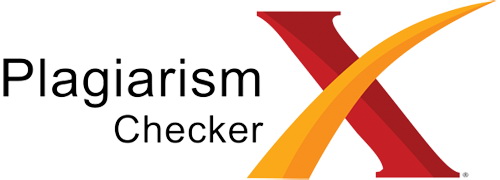Analisis Neraca Air Lahan untuk Perencanaan Tanaman Padi Gogo dan Jagung pada Sub Das Wolasi
DOI:
https://doi.org/10.53863/agronu.v3i01.717Keywords:
Land water balance, rainfall, planting seasonAbstract
Infomation climate data of a place plays an important role in the development of agriculture in the region. This can be used to find out about the relationship between plants and climate, estimates of planting time, harvest time, drought (water deficit), flooding (water surplus) can be made, and determining the types of plants used. In accordance. This study aims to determine the level of groundwater availability based on land water balance analysis in the Wolasi sub-watershed and to find out how to plan planting patterns of upland rice and corn according to groundwater availability in the Wolasi sub-watershed. This study uses monthly rainfall data for 10 years (2012-2021) and other climate data (air temperature) for 10 years (2012-20121). Calculation of land water balance using the Throntwaite-Mather method. The result of land water balance calculation under conditions of monthly average rainfall distribution of water availability in the Wolasi sub-watershed are classified as very adequate where a surplus occurs from January to July and December. While the water deficit occurs from August to October. At a 75% chance of rainfall, the distribution of water availability is classified as very adequate,where a surplus occurs from January to July and November to December and a water deficit occurs from July to October. In the Wolasi sub-watershed, the montly average rainfall for upland rice can be planted in January and the final harvest in April, while for corn, the initial planting can be done in May and the final harvest in July, upland rice and corn can be planted twice in a row. a year and can also be planted in intercropping. With a 75% chance of rainfall in the Wolasi sub-watershed, the initial planting of upland rice can be done in January and the final harvest in April, while corn plants can be intercropped, planting upland rice and corn can be done once a year.
References
Barung, F.M. & Pattipeilohy, W.J. (2020). Neraca Air Lahan dan Tanaman Padi di Kabupaten Manokwari Selatan, Papua Barat pada Tahun 2019. Buletin GAW Bariri, 1(1), 29-36
Cahyo, A.N., Stevanus, C.T. & Syafaah, A. (2020). Perhitungan Kebutuhan Irigasi Pembibitan Batang Bawah Karet Berdasarkan Neraca Air di Sembawa Sumatera Selatan. Jurnal Penelitian Karet, 38(1), 37-48
Kumanbala, P.G & Ervine, A. (2010). Water Balance Model of Lake Malawi and its Sensitivity to Climate Change. The Open Hydrology Journal 4: 152 -162
Mahanani, A.U., Tuhuteru, S., Haryanto, T.A.D. & Rif’an, M. (2020). Karakteristik Stomata Daun Tanaman Padi Gogo (Oryza sativa L.) Berdasarkan Ketinggian Tempat Tumbuh di Kabupaten Jayawijaya. Gontor AGROTECH Science Journal, 6(3), 251-281
Nasir, A. (2002). Neraca Air Agroklimatik. Makalah Pelatihan Bimbingan Pengamanan Tanaman Pangan dan Bencana Alam. Bogor.
Paski J.A.I, G.I.S.L, Faski MF, Handoyo D.A.S, Pertiwi. (2017). Analisis Neraca Air Lahan untuk Tanaman Padi dan Jagung di Kota Bengkulu. Jurnal Ilmu Lingkungan. 15 (2) : 83-89.
Pramudia A. (2010). Evaluasi Puncak Tanam dan Potensi Masa Tanam TanamanPangan di Kabupaten Aceh Besar, Makalah. Balai Peneliti.
Rao, M.S., & N.M. Bhaskara. (2015). Andhra Pradesh Water Balance and Cropping Pattern of the Garladinne Mandal, Anatapuramu District, Andhra Pradesh, India. Transactions Institute of Indian Geographers. 37 (1): 1-14.
Tufaila M, La Mpia, & Karim J . (2017). Analisis Neraca Air Lahan pada Jenis Tanah yang Berkembang pada Daerah Karts di Kecamatan Parigi, Kabupaten Muna, Sulawesi Tenggara. Jurnal Agritech. 37(2) : 215-219.
Downloads
Published
How to Cite
Issue
Section
License
Copyright (c) 2024 Nur Fitria Sani,Darwis Darwis,Syamsu Alam,Rustam Rustam,Siti Leomo,Dedi Erawan

This work is licensed under a Creative Commons Attribution-ShareAlike 4.0 International License.
Authors retain copyright and grant the journal right of first publication with the work simultaneously licensed under a Creative Commons Attribution-ShareAlike 4.0 International License that allows others to share the work with an acknowledgment of the work’s authorship and initial publication in this journal










